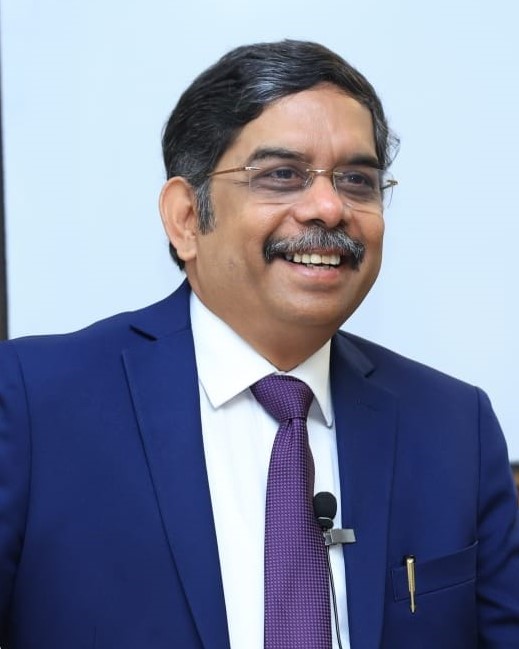 | Dr S. SUNDAR MANOHARAN
Professor & Director General
Ph.D
Email : S.S.Manoharan@pdpu.ac.in
Areas of Interest: Nano polymeric coatings on cardiovascular stents and endovascular stents (shape memory alloys).
Additive manufacturing of metal implants (Prosthesis).
Smart grid system using Internet of Things.
Combatting Antimicrobial resistance Bacteria (CARB).
Novel Gadolinium based molecular materials for theragnostic applications.
Repurposing of antibiotics employing site specific nano-formulations.
Magneto-rheological fluids for MR Damper to arrest seismic vibrations.
Fabrication of Laser Lithography instrument.
Vanadium redox flow batteries for smart grid applications.
Biodegradable polymers (dl-poly-lacto-glycolide) for Nano drug encapsulation & sustained drug release of Tuberculosis drugs, and scale up process.
Nano-materials: Ferromagnetic alloys and chalcogenides
Magneto-electronics: Colossal Magnetoresistive oxides. Half metallic ferromagnets.
Organic Light emitting diodes: Benzthiazole based molecules for white light emission, Photonic precursors for Inorganic Photonic oxides.
Thin Film nanostructures employing Molecular Beam Epitaxy: Nanomagnetism
Magneto-resistive Polymers: spin-electronic applications, Materials Characterization using advanced techniques
Pulsed Electron Deposition (PED) and Pulsed Laser Deposition (PLD) of Metallic Thin films, Spintronic trilayer devices and Semiconductor optical materials.
Brief Profile:
|
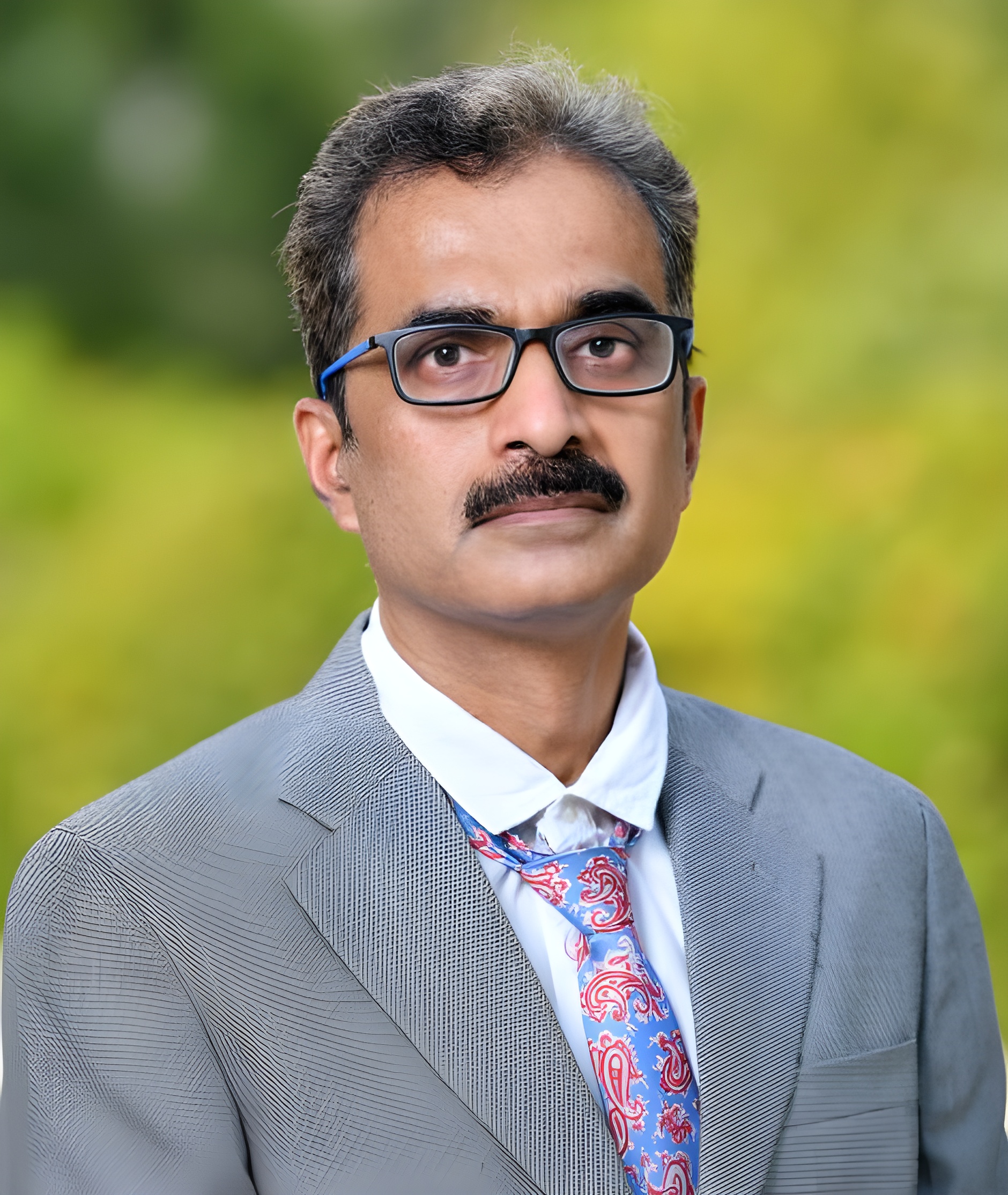 | Prof Rajib Bandyopadhyay
Professor
Ph.D, M.Sc., B.Sc.
Email : Rajib.Bandyopadhyay@sot.pdpu.ac.in
Areas of Interest: Heterogeneous catalysis, Materials chemistry, Zeolites and other porous materials, their synthesis and application in fine chemicals and petroleum refining Brief Profile: Dr. Rajib Bandyopadhyay has been working in the School of Technology since October 2010. He received his PhD degree from National Chemical Laboratory (NCL), Pune in 1997. Later he did postdoctoral research in Japan (NEDO and JSPS Fellow) for four years followed by Germany (Alexander von Humboldt Fellow). Before joining PDPU, Dr. Bandyopadhyay worked in senior management position in the R&D sectors of various multinational companies including Sud-Chemie, Owens Corning and Sika. He has more than 70 publications in peer-reviewed international journals and book chapters. He also regularly reviews journal papers from Elsevier and other publishers. He is a Fellow of Royal Society of Chemistry (FRSC), and life member of International Zeolite Association, and Catalysis Society of India.
|
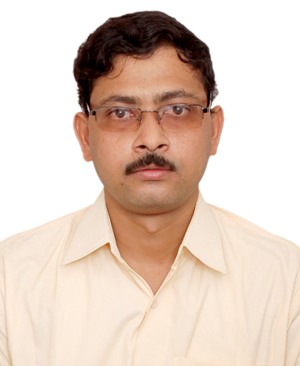 | Dr Anirban Das
Associate Professor
Ph.D
Email : Anirban.Das@spt.pdpu.ac.in
Areas of Interest: Isotope geochemistry; Environmental geochemistry; Groundwater studies; Weathering-Climate connections.
Brief Profile: Dr. Anirban Das joined the University in December 2008 and is working as an Associate Professor. Prior to joining the University, he worked as a JSPS fellow at Hiroshima University (Japan), and as a postdoctoral fellow at University of Ottawa (Canada). During his lien from the University (2010-2012), he also worked as a research associate/postdoctoral fellow at James Cook University (Australia) and at National Cheng Kung University (Taiwan)----all these positions were funded by science agencies of the respective countries.
He has/had been awarded with TWO DST funded projects (60.2 Lacs) to carrying out geochemical and isotopic research on Chromium and Fluorine rich groundwater. His research interests fall in the larger domains of isotope and environmental geochemistry. His research works are published in high quality international journals, and in addition, he receives invitation to review articles/proposals submitted to international journals/Science foundations (NSF).
He was/is involved in teaching of courses such as marine geochemistry, thermodynamics, kinetics, inorganic chemistry, engineering chemistry and chemistry to BTECh/MSc/BSc students.
|
 | Dr Kalisadhan Mukherjee
Associate Professor
B.Sc., M.Sc., Ph.D
Email : Kalisadhan.Mukherjee@sot.pdpu.ac.in
Areas of Interest: 1. Chemiresistive and electrochemical sensor for the detection of gas and liquid phase analytes.
2. Adsorbents for water purification.
3. Organic/ Inorganic photo-sensitizer based solar cells. Brief Profile: Dr. Kalisadhan Mukherjee joined Pandit Deendayal Petroleum University, Gandhinagar, India on February 28, 2019. He did Ph. D from Materials Science Centre, Indian Institute of Technology, Kharagpur in 2012. He completed M.Sc in Chemistry from University of Burdwan, India in 2006.
|
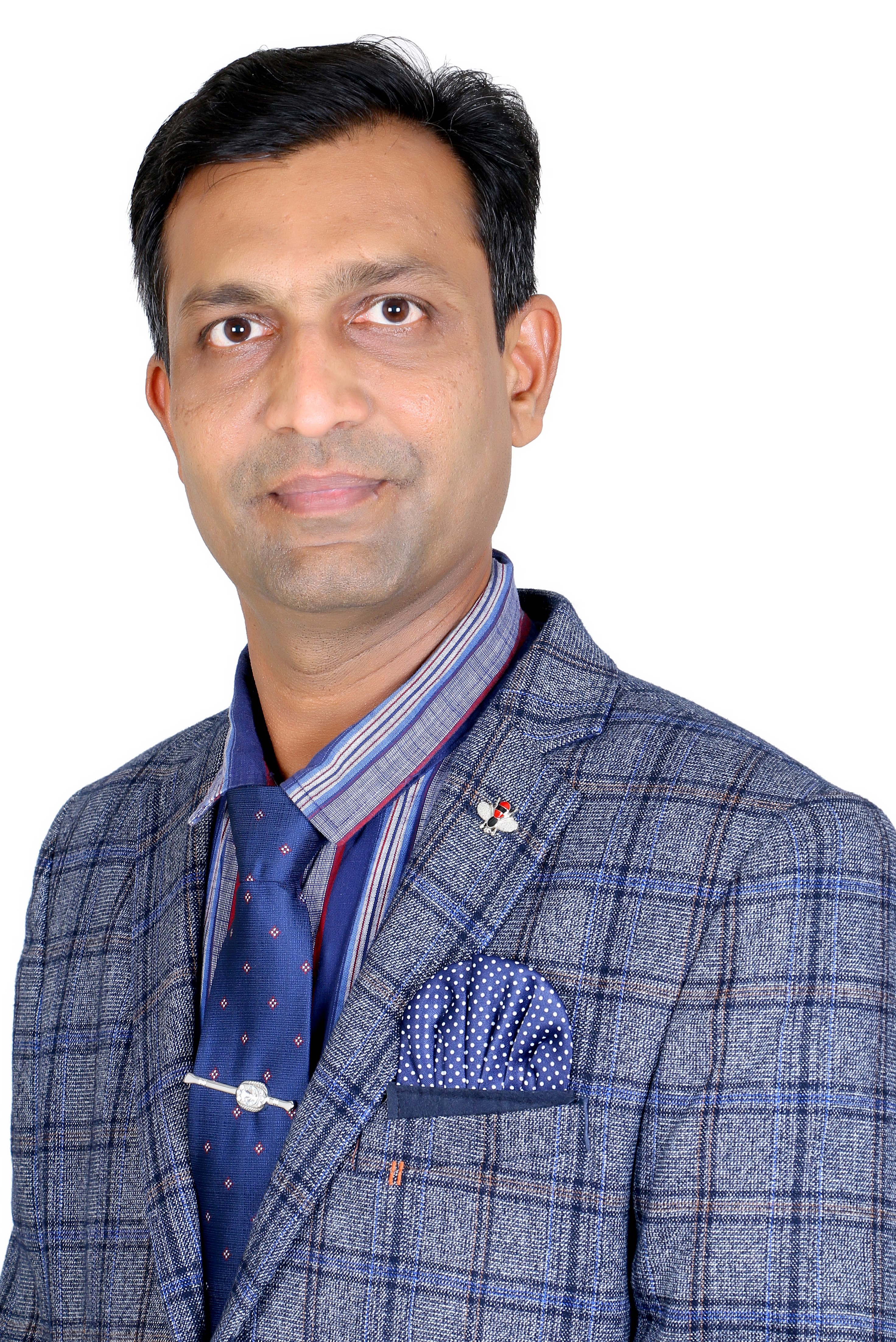 | Dr Nitin Chaudhari
Associate Professor
Ph.D, M.Sc., B.Sc.
Email : Nitin.Chaudhari@sot.pdpu.ac.in
Areas of Interest: Research interest includes the design and development of nanomaterials for energy storage and conversion devices. Active electrode materials- carbon, nanocomposites, oxides, sulfides, hydroxides, 2D MXene for Fuel Cell, Lithium-ion Batteries, Supercapacitors, Water splitting. Brief Profile: Dr. Nitin Chaudhari joined the department of chemistry, School of Energy Technology as Associate Professor in Feb. 2020. He received his Ph. D. degree in Material Science from Korea University, South Korea in 2013 under the prestigious Korean government's Fellowship. After PhD, he worked as research professor at Myongji University and then at Korea university, South Korea between 2013 and 2019. Prior to joining PDEU, he was a Deputy Director at Nexcoms Ltd. Co., Daejeon, South Korea. He has over 45 peer-reviewed paper publications in reputed international journals, 3 patents and 4 book chapters. He also delivered several platform and invited talks at national and international seminars and conferences. Dr. Chaudhari is also acting as a reviewer to the papers submitted to various journals. His group is currently working on the bilateral international project funded by DST (India) and NRF (South Korea) and another funded by CPRI, Bangalore under Ministry of Power GoI. Dr. Chaudhari is looking for bright, enthusiasts and highly motivated students, pot-doc and researchers to work on the broad area of material science.
|
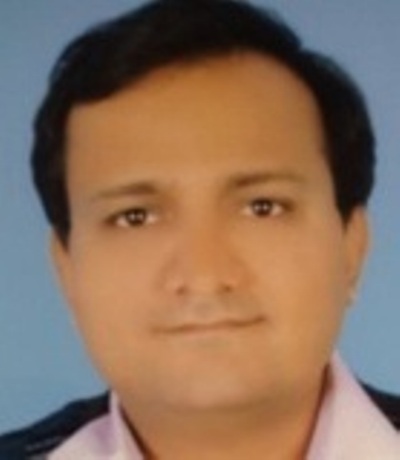 | Dr Prakash Chandra
Associate Professor
B.Sc., M.Sc., Ph.D
Email : Prakash.Chandra@sot.pdpu.ac.in
Areas of Interest: Homogeneous, Heterogeneous catalysis and Nanomaterials in catalysis. Synthesis of the first row of the transition metal-based nanocatalysts using single-source molecular precursors and applications in catalytic organic transformations. Synthesis of organic-inorganic hybrid materials and their applications in multifarious applications in catalysis photocatalysis for organic transformations including pharmaceuticals, fine chemicals. Furthermore, he is currently exploring electrochemistry (sensing, hydrogen generation, supercapacitors) and mechanical properties (tribological studies) Brief Profile: Dr. Prakash Chandra is with PDPU Gandhinagar SOT since December 2019. Prior to joining PDPU, he worked as Research associate at PPISR Bengaluru, IIT Indore and UCL IMCN Belgium. He has more than 3 years of research experience in the field of homogeneous and heterogeneous catalysis for selective organic transformation. Previously, he did his Ph.D. under the guidance of Dr. Shubhangi Umbarkar on the synthesis and application of molybdenum based homogeneous and heterogeneous catalysts for oxidation of organic compounds. He has also experience the field of application heterogeneous catalysts, energy storage, waste water purification. He is currently supervising 4 PhD, 2 M.Sc. students and 1 B.Sc. students.
|
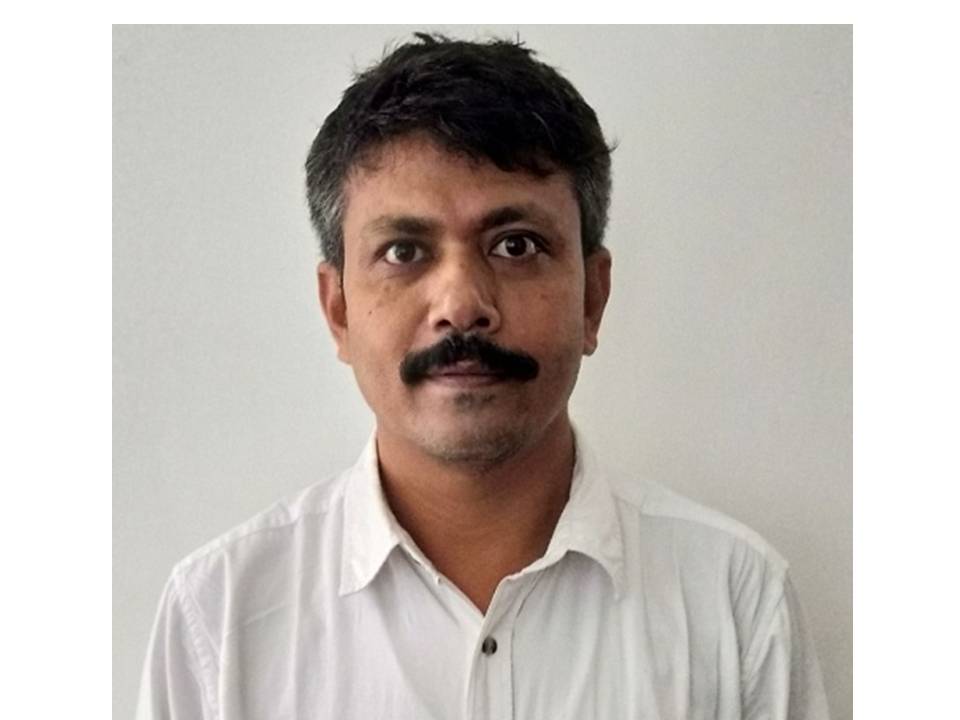 | Dr Ranjan Pati
Associate Professor
Ph.D
Email : Ranjan.Pati@sse.pdpu.ac.in
Areas of Interest: Nanomaterials, Renewable Energy, Water-Gas-Shift (WGS) catalysts, Polymer Electrolyte Membrane Fuel Cell (PEMFC), Solid Oxide Fuel Cell (SOFC), Ionic Conductivity. Brief Profile: Dr. Ranjan K. Pati was working as Senior Scientist at Solar Research & Development Center, PDPU since July 2015 with the aim to establish and develop the solid oxide fuel cell (SOFC) research facility at PDPU. Before joining at PDPU, he served as an Assistant Professor at SVNIT, Surat. Prior to that he spent almost 11 years at the United States of America both in Academic Institutions and Industries, which include New York State College of Ceramics at Alfred University, University of Maryland, College Park, Latitude 18, Inc. Dr. Pati's Research interests include Nanomaterials and their application in Fuel Cell Technology.
|
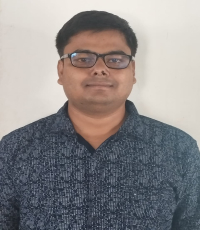 | Dr Abhijit Biswas
Assistant Professor
M.Sc., Ph.D
Email : Abhijit.Biswas@spt.pdpu.ac.in
Areas of Interest: Peptide-based biomaterials, Cell-penetrating peptide, Tissue engineering, DNA nanotechnology, RNA based drug delivery Brief Profile:
|
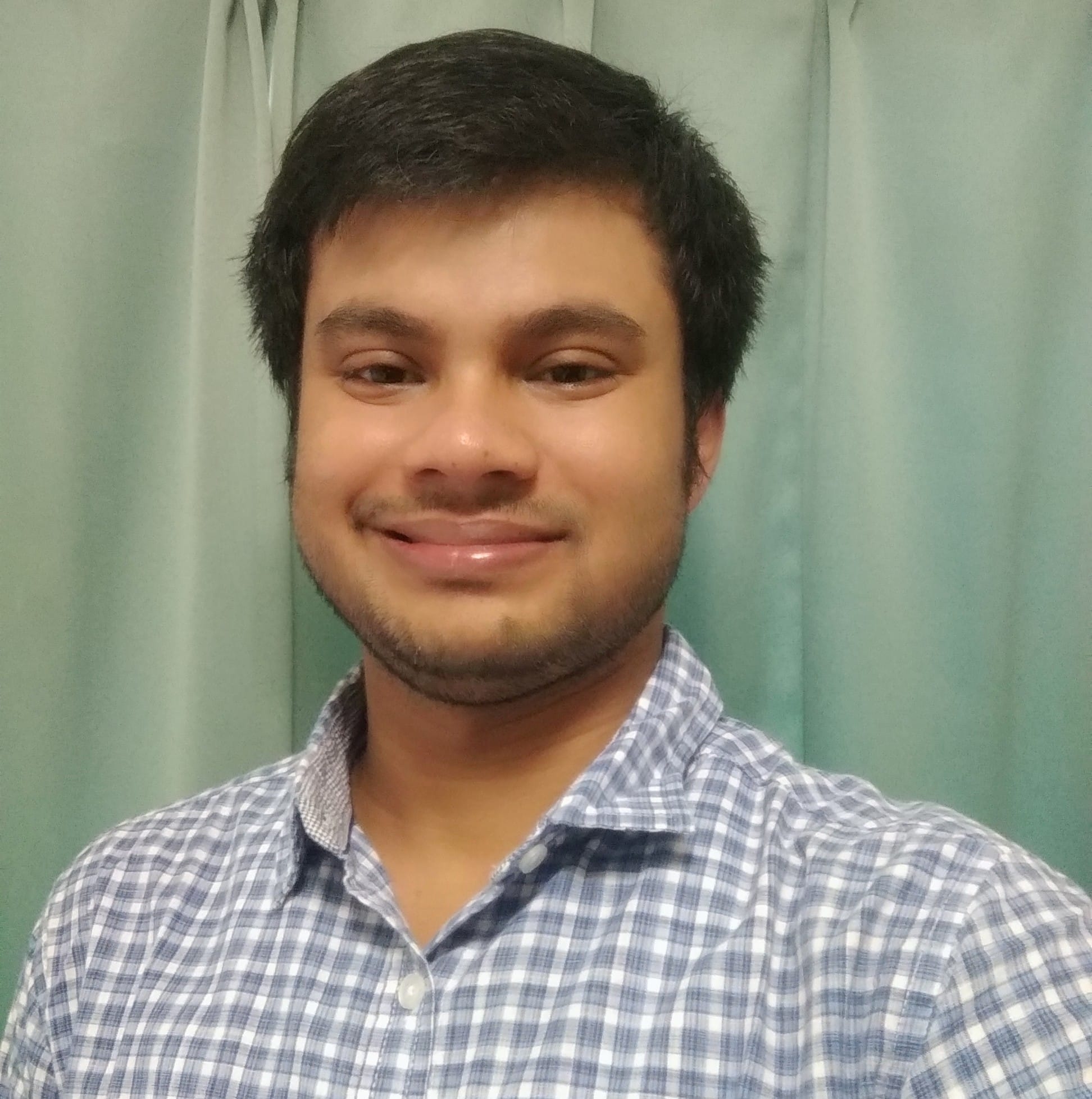 | Dr Amarjyoti Das Mahapatra
Assistant Professor
B.Sc., M.Sc., Ph.D
Email : Amarjyoti.Das@spt.pdpu.ac.in
Areas of Interest: My research focuses on the development of small-molecule inhibitors and targeted protein degraders for therapeutic applications, particularly in the areas of anticancer and antimicrobial agent development. Brief Profile: August 2025 - Present: Assistant Professor, Department of Chemistry, PDEU
2025 - 2023: Postdoc: IIT Kanpur
2023 - 2022: Postdoc: KIT Germany
2021 - 2015: PhD: IIT Gandhinagar
2015 - 2013: MSC: IIT Gandhinagar
|
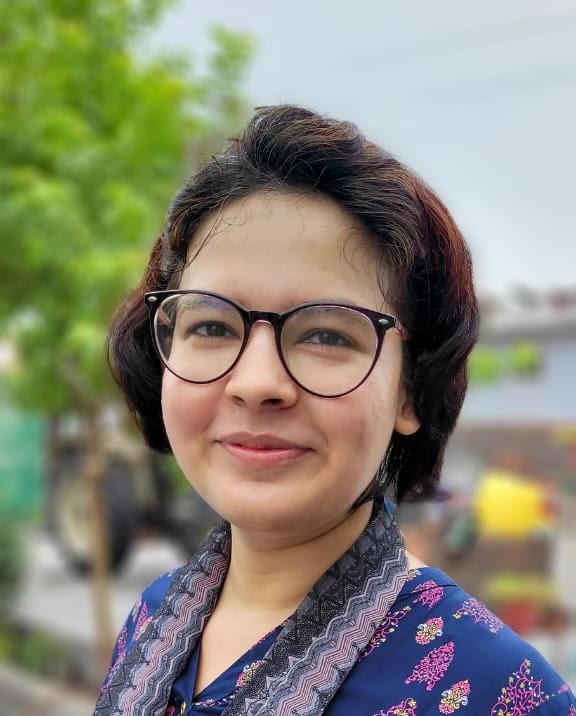 | Dr Anu Manhas
Assistant Professor
M.Sc., M.Phil., Ph.D
Email : Anu.Manhas@sot.pdpu.ac.in
Areas of Interest: Application of In silico drug design to address the problems related to drug-resistance. Research activity includes structure-based drug design, molecular docking, virtual screening methods like drug-likeness studies and ADMET properties, molecular dynamics simulations and free energy calculations. Brief Profile: Dr. Anu Manhas is currently working as an Assistant Professor in the Department of Science at School of Technology. She received her Ph.D. in Chemical Sciences from Central University of Gujarat. Her area of research is focused on computer-aided drug design targeting Plasmodium falciparum, Mycobacterium tuberculosis and Cancer.
|
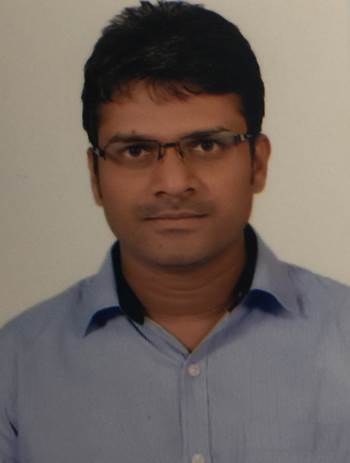 | Dr Balanagulu Busupalli
Assistant Professor
B.Sc., M.Sc., Ph.D
Email : Busupalli.Balanagulu@sot.pdpu.ac.in
Areas of Interest: Energy harvesting from soft materials such as polymer and lipid-based vesicular systems forms the core research interest. Electricity generation from shape fluctuations induced in such soft material systems through external agents such as temperature and osmotic pressure. Electrochemical hydrogen generation from metal-based layered and molecular materials. Chemical modifications of such metal-based molecular materials for energy applications. Brief Profile: Balanagulu Busupalli had completed his PhD from CSIR-National Chemical Laboratory and MSc from Sri Venkateswara University in Chemistry. He has gained postdoctoral experience from Harvard University for two years and from the University of Massachusetts Boston for six months, during which he had worked on origins of life through realization of self-replication in artificial cells. During his PhD he had worked on less studied structural features of two-dimensional layered materials such as palladium thiolates and utilized them as precursors for the preparation of magnetically active metal sulfide nanosheets. Later, these were utilized as efficient catalysts for electrochemical hydrogen generation.
|
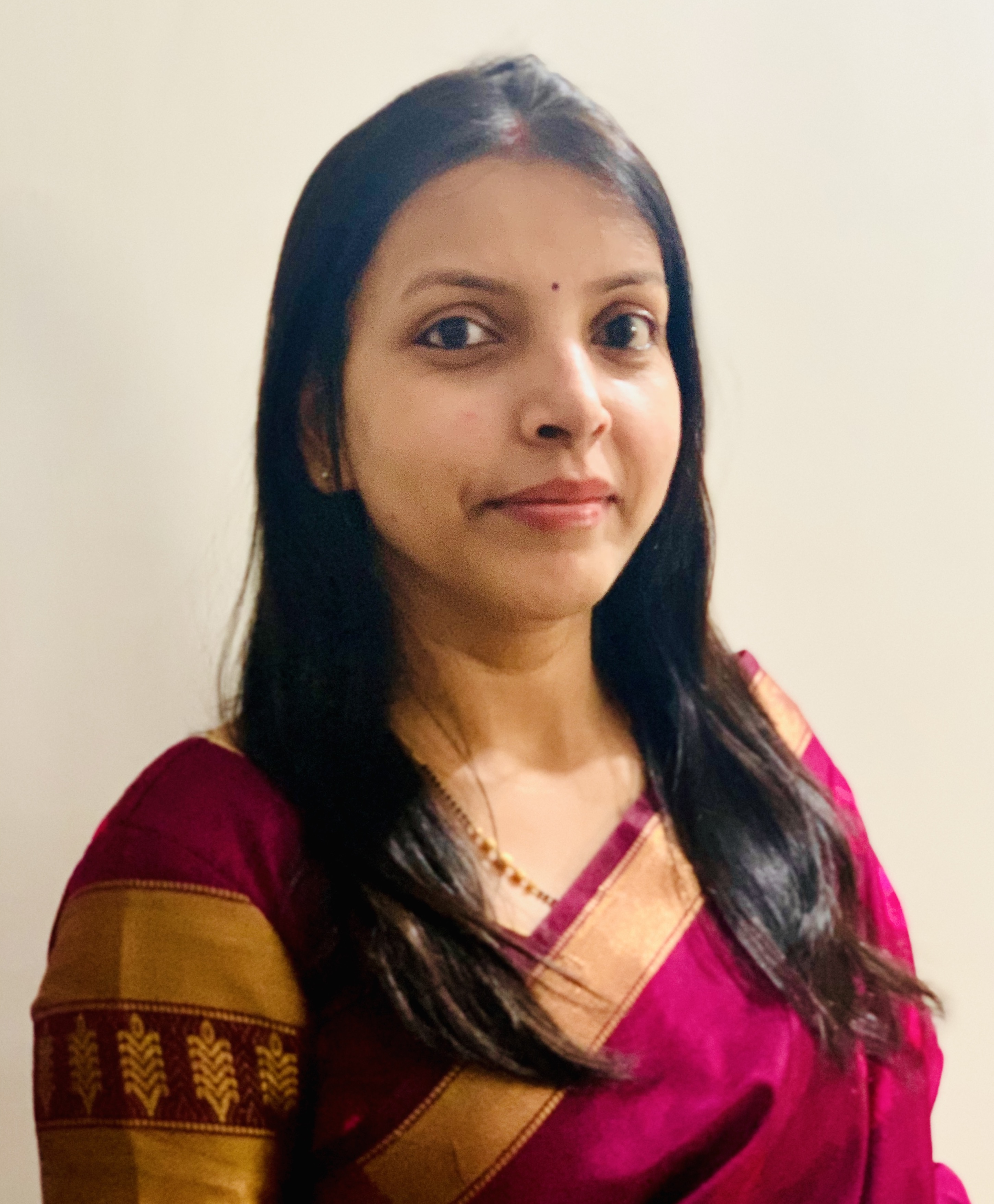 | Dr Rama Gaur
Assistant Professor
Ph.D, M.Sc., B.Ed., B.Sc.
Email : Rama.Gaur@sot.pdpu.ac.in
Areas of Interest: Synthesis of nanoscale materials with interesting and unique morphologies by simple and economical chemical approaches.
Shape and size dependent optical, magnetic and electrochemical properties.
Applications in photocatalysis, optoelectronics, electrochemical sensing, electrocatalytic reduction/oxidation, solar energy conversion, energy storage devices, supercapacitors, water splitting and environmental remediation. Brief Profile: Dr. Rama Gaur has expertise in materials science and nanochemistry. She received her Ph.D. degree in Chemistry from IIT Roorkee in 2017. Before joining PDEU, Dr. Rama worked at the CSIR lab, Indian Institute of Petroleum, Dehradun, NIT Hamirpur, IIIT Una, and SRM University. She has more than 5 years of research experience in the use of nanomaterials for environmental remediation applications. She has a vast knowledge of the synthesis of size and shape-dependent nanomaterials and their applications in photocatalysis and sensing. Dr. Gaur is working on the development of cost-effective adsorbents and photocatalysts materials for wastewater and waste oil treatment. Dr. Gaur is actively involved in several research projects in collaboration with IIT Gandhinagar and IIT BHU based on the role of nanomaterials and their shape and size-dependent applications. Dr. Gaur has two DST and two student research projects ongoing and more than 30 publications.
|
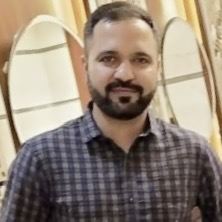 | Dr Sanjay Singh
Assistant Professor
Ph.D
Email : Sanjay.Singh@spt.pdpu.ac.in
Areas of Interest: Our group explores sustainable catalysis at the interface of organocatalysis, 3d metal catalysis, and photoredox catalysis. We design novel organocatalysts and ligand frameworks to achieve high stereoselectivity. Through visible-light activation, we unlock new reactivity in C-H functionalization, radical trapping, and CO2 valorization. Collectively, our work drives catalytic innovation toward greener and scalable chemical synthesis.
Brief Profile: Dr. Singh joined Pandit Deendayal Energy University (PDEU), Gandhinagar, Gujarat, in 2024. He earned his PhD from the Indian Institute of Technology, Delhi, under Prof. Ravi P Singh, where he developed stereoselective organocatalytic methodologies for the synthesis of enantioenriched motifs with applications in bioimaging and pharmaceuticals. He subsequently worked as a PDRA in Prof. Ravi's group till July 2024, where her focused on exploring peptide-based organocatalysts for enantioselective synthesis. At PDEU, Dr Singh's research is dedicated to sustainable organic synthesis, exploring organocatalysts, 3d-metal catalysis, and photoredox catalysis for developing environmentally benign and industrially relevant synthetic protocols.
|
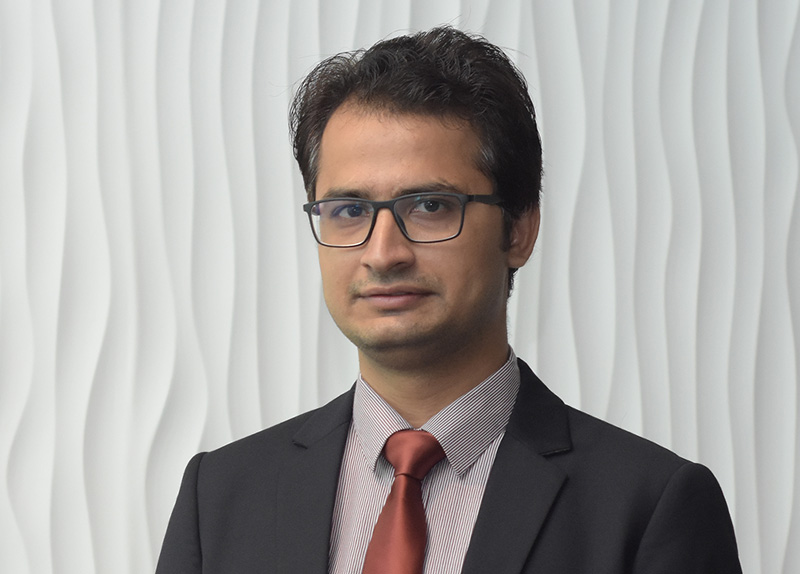 | Dr Syed Shahabuddin
Assistant Professor
B.Sc., M.Sc., Ph.D
Email : Syed.Shahabuddin@sot.pdpu.ac.in
Areas of Interest: Synthesis of Nanomaterials, 2D-MXene, Graphene, conducting polymer nanocomposites for water treatment, photocatalysis, supercapacitors, DSSCs, nanofluids for solar thermal applications and phase change materials. Brief Profile: Dr. Syed Shahabuddin has joined School of Technology, PDPU since December 2019 as an assistant Professor. He did his M.Sc. in Materials Chemistry in 2011 from Jamia Millia Islamia, New Delhi. He has been awarded PhD degree in polymer chemistry from University of Malaya, Malaysia, in September 2016. He was an RA under High Impact Research (HIR) grant,Ministry of Higher Education, Malaysia, from October 2013-June 2016.He has served as Assistant Manager in Samtel Avionics Limited for more than 3 years in research and development of avionics grade displays.He has worked as Senior Research Fellow at Research Center for Nano Materials and Energy Technology (RCNMET), Sunway University, Malaysia for more than two years. He has published more than 125 research articles in peer-reviewed international journals. He is a member of Royal Society of Chemistry (RSC) and reviewer of many high impact journals.
|
 | Dr Vijayalakshmi Pandey
Assistant Professor
B.Sc., M.Sc., Ph.D
Email : Vijayalakshmi.Pandey@spt.pdpu.ac.in
Areas of Interest: Organic Synthesis for fluorescent dyes, photochemical reactions and singlet oxygen sensing Brief Profile:
|
|
|